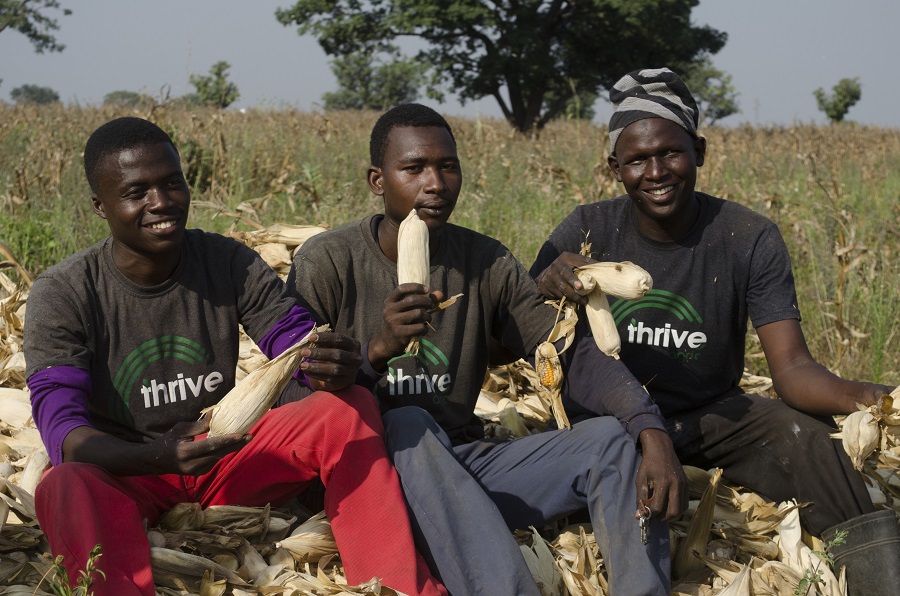Introduction – Reality Check
If you know me by now, you probably would have noticed that I have cautious excitement about Nigeria’s tech space. I have seen interesting, not so interesting and unimpressive business propositions. I believe that there are real problems to solve, but we are turning a blind eye to a lot of them.
And I know why! It is not exciting to solve hard problems. That’s why most startups want to enable online payment just for the few who are willing or able to pay online, rather than help that farmer in Taraba pay for fertilizers and receive payments from his offtakers.
This farmer does not use a smartphone; Smile, Swift and Spectranet do not find those locations viable. Also, the farmer does not have a bank account, let alone a debit card. He doesn’t understand OTP, but he has to participate in commerce in a certain way. That is a real (hard) problem to solve. You can’t solve that from Lagos and Abuja – not from your newly refurbished office in Yaba. These types of problems require grit!
There are a lot of such problems. How do you ensure that Alhaji Bashir takes health insurance for his immediate family? Or how do you open an online market for Mama Risi in Balogun market? These are really big problems to solve and they are not for small children.
I am not in any way saying that the challenges faced in making online payments have been fully solved; I am saying that there are other real problems to solve.
My Criteria
In selecting my startups, one major question I asked is, “What problem is the startup solving?” Is it a real problem or tech for tech’s sake? Is it a need-to-have or a nice-to-have (painkiller or multivitamin)? I need to know if it is a great idea on paper, but very tricky to implement. I will like to find out, whether the market is ready for the product or if the product is way ahead of its time.
Additionally, I will like to find out how large the potential target market is. And more importantly, do I believe that the team can execute in this market?
In no particular order, here are my startups to watch in 2018.
Farm Crowdy
Farmcrowdy is an agritech platform that gives Nigerians the opportunity to participate in agriculture by selecting the kinds of farms they want to sponsor (fund). The sponsorship is then used to secure the land, engage the farmer, plant the seeds, insure the farm produce, complete the full farming cycle, sell the harvest and then pay the farm sponsor a previously agreed return on their sponsorship. While this farm process is ongoing, the farm sponsors are able to keep track of the full-cycle by getting updates through texts, pictures and videos.
Upon completion of the cycle, the farm produce is sold and everyone who participated in the process (the sponsor, the farmer and FarmCrowdy) gets paid.
Thrive Agric
Thrive Agric has a similar business model to Farm Crowdy. The major difference is that FarmCrowdy works with existing farmers, while Thrive Agric creates its own farm. Their job is to get into a community, negotiate land from the community and get locals to farm it on behalf of the sponsors.
Another reason I love Thrive Agric is that the founders were farmers first before technology came in. So they have unique insights into how farmers work and the challenges involved.
Thrive Agric is a recent graduate of the Ventures Platform 2nd Cohorts.
LifeBank
LifeBank is a platform that makes blood available when and where it is needed in Nigeria to save lives. They mobilise blood donations, take inventory of all blood available in the country, and deliver blood in the right condition to the points of need.
LifeBank seats in the medical supplies value chain. Through its App, it helps coordinate blood donation to blood banks and also helps hospitals in sourcing blood or other medical supplies. The technology and logistics company is based in Lagos, and incubated at Co-Creation Hub in Yaba. As at January 2017, the company has helped deliver over 2000 pints of blood to patients across the state.
The founder, Temie Giwa-Tubosun, has over 10 years of work experience in global health, and has worked as a Global Health Fellow at the United Nations Development Project Millennium Village in Ruhiira, Uganda; she has worked for the World Health Organization (WHO) and the Department for International Development (DFID) in Switzerland and Nigeria respectively, as well as in the Ministry of Works in the Lagos state government as an operations manager. I believe that she has the capacity to upscale the business in 2018.
Mines.io
Mines.io provides a credit scoring and loan application platform designed to provide access to formal credit. The company’s platform uses sophisticated algorithms to analyze multiple data sources and cost-effectively predicts default risk as well as offers an end-to-end platform to apply for loans through mobile, enabling both banked and un-banked consumers to receive instant loan approvals.
“Through mobile” – that, for me is the differentiator. Mines.io is able to analyse customers’ mobile behavior (banking history, and spending patterns) to determine credit worthiness, and you don’t have to download an App! This opens up over 100m Nigerians to their platform rather than being limited to only a few who use smartphones.
The team behind the business has also proven to be elite. Ekechi Nwokah has a Ph.D in computer engineering, Kunle Olukotun has a Ph.D in computer engineering from the University of Michigan, Arvind Sujeeth received his Ph.D. in electrical engineering from Stanford University and Abi Adeoti received his M.B.A. from Pepperdine University. The interesting thing about the team is that its members are not inexperienced; they understand the problem and are able to solve it using technology.
dot Learn
dot Learn uses proprietary video compression technology to deliver low-bandwidth online courses in Africa. This technology allows edtech businesses to provide video content for their students at much lower bandwidth costs without compromising the video quality.
The market size for this business transcends Nigeria. It includes all emerging and frontier markets where internet speed is slow or where users cannot afford to stream educational content because of the cost attached to video streaming.
I love the approach because dot Learn is not building a consumer product. Their target is simple – Coursera, Khan Academy, Udemy etc. All these companies want to drive engagement in emerging markets; however, internet is not readily available. Hence, they will require dot Learn to help “compress” the videos so that the consumers will be able to watch without recourse to data.
dot Learn will only earn from the video content providers.
The team behind the company is elite. Samrat Bhattacharyya has an MBA from Massachusetts Institute of Technology (MIT), while Tunde Alawode had his Ph.D from the same university. They have sufficient relationships to access the biggest providers of educational videos.
dot Learn was at the TechCrunch Battlefield Nairobi in 2017.
Conclusion
I believe these companies will make strong impressions this year. Watch out!
Happy entrepreneuring!





















